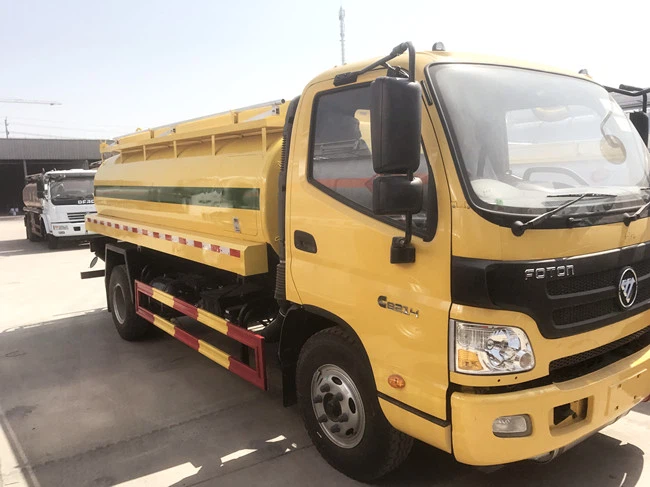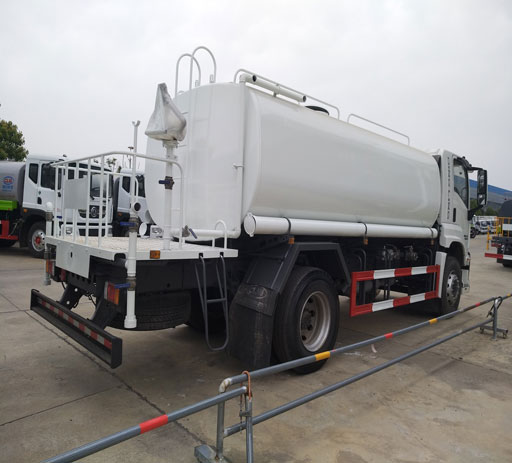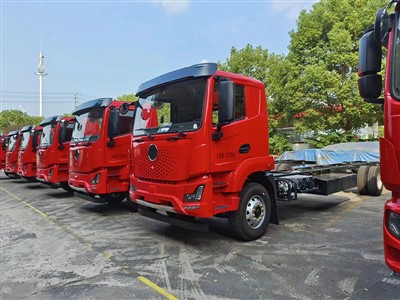Finding the Perfect Rubbish Truck for Sale: A Comprehensive Guide

Are you looking for a rubbish truck for sale to enhance your waste management operations? Whether you’re in the business of hauling garbage, recycling materials, or managing an urban sanitation service, choosing the right rubbish truck is crucial for your success. This guide will walk you through every aspect of buying a rubbish truck, from understanding types and specifications to evaluating costs and maintenance. Let’s dive into everything you need to know.
1. Understanding Rubbish Trucks
Before purchasing a rubbish truck, it’s essential to understand what it is and its various configurations. A rubbish truck, also known as a waste collection vehicle, is designed to collect, transport, and dispose of waste materials. Here are the main types of rubbish trucks:
1.1. Rear Loader Trucks
Rear loader trucks are equipped with a hinged rear door, which allows waste to be loaded from the back. These trucks generally have low loading heights making them popular for residential rubbish collection.
1.2. Front Loader Trucks
Front loader trucks utilize large forks to lift containers, making them ideal for commercial operations. They are more suitable for areas with larger waste containers.
1.3. Side Loader Trucks
Side loader trucks can pick up waste from the side, which is beneficial in urban residential areas where space is limited. They can be mechanically operated, reducing labor costs.
2. Key Specifications to Consider
When searching for a rubbish truck for sale, you need to focus on specific specifications that influence performance and suitability for your needs:
2.1. Capacity
The truck’s capacity is measured in cubic yards. A larger capacity enables you to haul more waste, minimizing the number of trips required. Common sizes range from 10 to 30 cubic yards.
2.2. Engine Power

Look for trucks with powerful engines designed for heavy loads. Most rubbish trucks utilize diesel engines, which provide better torque and efficiency.
2.3. Fuel Efficiency
With rising fuel costs, fuel efficiency is a critical consideration. Go for models that offer the best miles per gallon.
2.4. Build Quality
The overall build quality affects durability and longevity. Choose trucks made with high-strength materials to withstand wear and tear.
3. Types of Rubbish Truck Designs
Rubbish trucks come in various designs. Below are some of the most common:
3.1. Standard Rubbish Truck
This is the most widely used type, capable of handling everyday waste collection needs.
3.2. Recycling Trucks
These specialized trucks are designed for collecting recyclable materials. They often have compartments for separating different types of recyclables.
3.3. Compaction Trucks
Equipped with compacting mechanisms, these trucks are essential for maximizing space when hauling waste, particularly in congested urban areas.
4. Evaluating Costs
Understanding the costs involved in purchasing a rubbish truck can help you make a financially sound decision:
4.1. Purchase Price
The price of rubbish trucks can vary significantly, ranging from $20,000 for used models to over $200,000 for new models with advanced technology.
4.2. Operating Costs
Consider ongoing expenses, including fuel, maintenance, and repairs. Regular maintenance is vital for ensuring longevity and avoiding expensive breakdowns.
4.3. Financing Options
If you cannot afford a full cash purchase, explore financing options. Many dealers offer payment plans or leasing options.
5. Where to Buy Rubbish Trucks
Finding a reliable source for purchasing a rubbish truck is essential. Here are some options:
5.1. Dealerships
Buying from a reputable dealership can give you the advantage of warranties and certified pre-owned options.
5.2. Online Marketplaces
Websites like eBay and specialized truck resale websites often have listings for both new and used rubbish trucks. Be cautious and verify the seller’s reputation.
5.3. Auctions
Local government auctions can be an excellent source for bargains on used trucks. Check terms of sale and vehicle history before placing bids.
6. Practical Tips for Buying a Rubbish Truck
Follow these practical tips to ensure you make the best purchasing decision:
6.1. Test Drive the Truck
Always take the truck for a test drive. Ensure it handles well and meets your specific operational needs.
6.2. Check Maintenance Records

If buying used, review the truck’s maintenance records. Regular upkeep indicates a well-maintained vehicle.
6.3. Get Pre-Purchase Inspections
Consider hiring a mechanic to perform a pre-purchase inspection. This step can save you from costly repairs down the line.
6.4. Research Warranty Options
Inquire about warranty options available on the truck, particularly for used models. Warranties offer peace of mind and protection against defects.
7. Maintenance and Care for Your Rubbish Truck
Proper maintenance is essential for the longevity of your rubbish truck. Here’s how to care for it:
7.1. Regular Oil Changes
Regular oil changes keep the engine healthy. Follow the manufacturer’s recommended schedules.
7.2. Brake Inspections
Inspect brakes frequently, as rubbish trucks often carry heavy loads that can wear down braking components faster.
7.3. Tire Maintenance
Check tire pressure and tread regularly to ensure safe driving and fuel efficiency.
8. Regulations and Licensing
Be aware of local regulations regarding rubbish collection. Licensing requirements can differ based on your location:
8.1. Commercial Driver’s License (CDL)
In many areas, you’ll need a CDL to operate a rubbish truck. Ensure that your drivers are licensed appropriately.
8.2. Waste Collection Permits
Check if you require specific permits for waste collection in your municipality.
9. Environmental Impact and Sustainable Practices
Investing in a rubbish truck also means considering its environmental impact. Look for eco-friendly options:
9.1. Compressed Natural Gas (CNG) Trucks
CNG trucks produce fewer emissions and can be a sustainable choice for waste collection operations.
9.2. Recycling and Composting Options
Incorporate recycling and composting methods into your rubbish collection strategy to reduce landfill contributions.
10. Frequently Asked Questions (FAQs)
10.1. What is the average lifespan of a rubbish truck?
The average lifespan of a rubbish truck is typically around 10-15 years, depending on usage and maintenance.
10.2. Are used rubbish trucks worth buying?
Used rubbish trucks can be a cost-effective solution, especially if they have been well-maintained and are from reputable dealers.
10.3. How often should I service my rubbish truck?

Regular servicing should occur every 5,000 to 7,000 miles or as recommended by the manufacturer to maintain optimal performance.
10.4. What type of rubbish truck is best for residential vs. commercial use?
For residential use, rear loader trucks are most common, while front loader trucks are preferred for commercial settings due to larger waste containers.
10.5. Can I finance the purchase of a rubbish truck?
Yes, many dealerships and financial institutions offer financing options for purchasing rubbish trucks.
10.6. What should I look for during a test drive?
Pay attention to how the truck handles, listens for unusual noises, and check the operational functions such as the lift and compaction systems.
